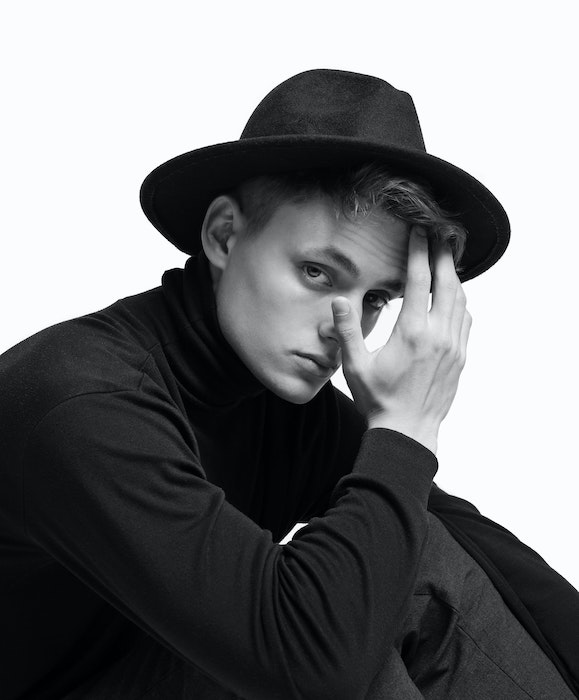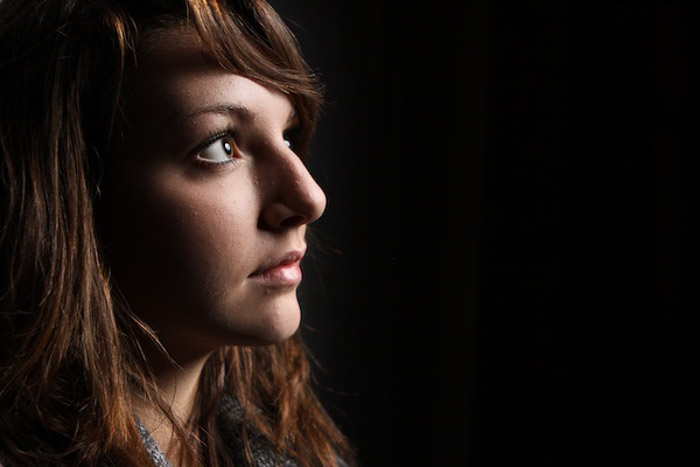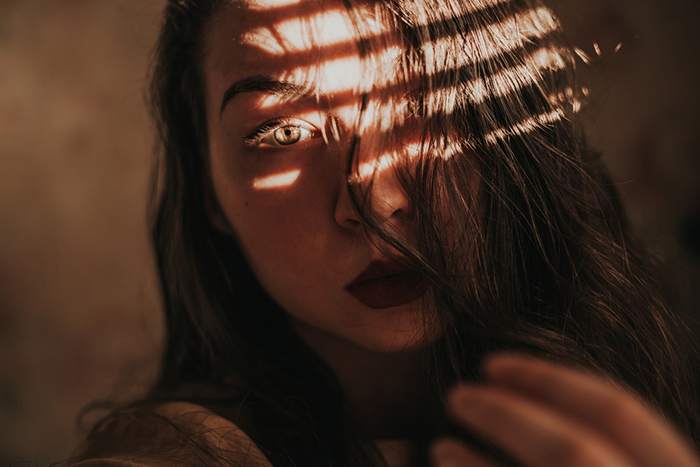If you’re looking to add some excitement to your photography, consider staging an underwater photoshoot. There’s just something about the challenge of capturing beautiful photos in a difficult environment that makes the end result all the more rewarding. Here are 12 tips to make sure your underwater photoshoot goes smoothly.
Underwater Photoshoot Ideas and Tips
Photographing Hair Underwater
Hair can be difficult to shoot underwater. It floats while your model is descending, sometimes into her face.
For this reason, I tend to tell my models to shoot right down to the bottom of the pool. This allows the hair to flow naturally.
As they ascend in the water column the hair floats back. This gives the same ethereal feel, without shadowing her face.
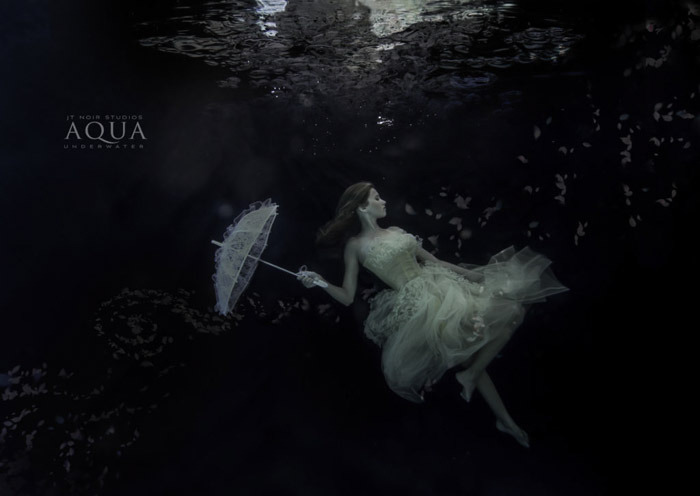
When working with clients without hair or shortened hair you can move a bit more freely with posing. The hair will not cloud their faces.
If you are shooting for a client, they will most likely prefer images showing more face. Make sure to get as many clear shots of their faces as you can.
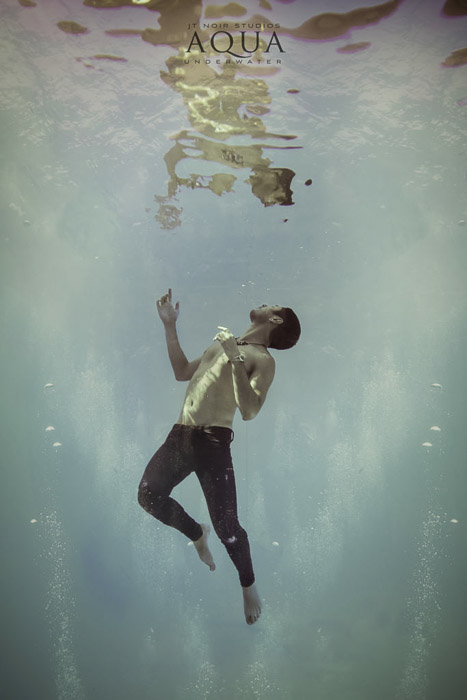
Where to Find Underwater Models
Finding models for underwater photography has become easier as the trend continues. Even those who are not professional models love the chance to create something new for their portfolios.
When speaking with potential models first ask about their swimming abilities. Here are some sample questions you could ask:
- Are you a strong swimmer?
- How long can you hold your breath?
- Do you panic easily in confined spaces? Being underwater can sometimes feel claustrophobic to some individuals.
- How well can you control your buoyancy?
Not all of these will deter me from working with a model or client. But it is good to know ahead of time if someone has certain concerns I need to be aware of during the day of the shoot.
Most models who contact you about an underwater photography session are generally strong swimmers. If they get there and it is more difficult for them, simply allow for a bit more time.
This is not a fast-paced fashion shoot where models can be in and out quickly. This is more labor intensive with the breath holds and the weight of the gowns underwater.
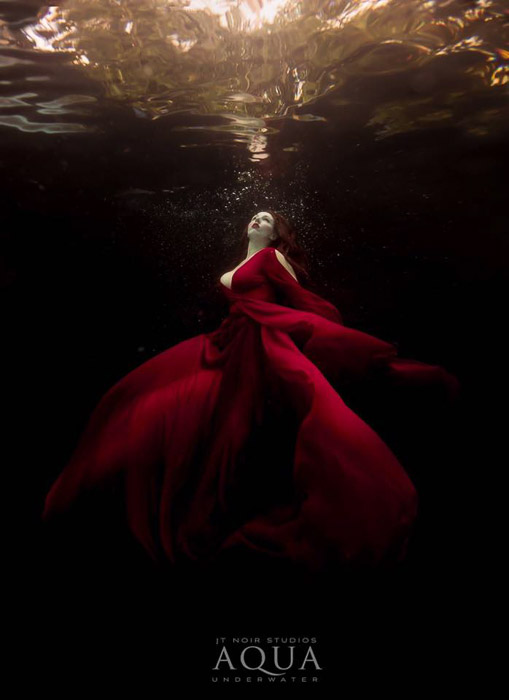
Directing Your Clients During an Underwater Photoshoot
When working with clients, remember to add more direction to the conversation. Most professional models will understand the posing concepts whereas your everyday client may not.
Explain on land prior to even setting foot into the water the direction you are looking to go. Having drawings or a storyboard will help your client see your vision.
You do not have to be a master artist for these sketches. Have something simple enough for the client to understand where you would like her arms and legs throughout the shot.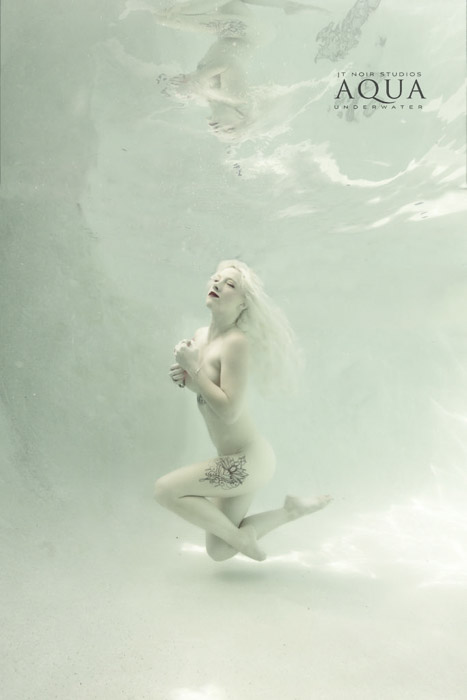
Create Surreal Underwater Photoshoots
Taking your underwater looks a bit further into a composite world can be exciting. Adding places and backdrops to your scene in post or in camera are great ways to add to your clients’ stories.
In the image below, a stock image of rocks gave a new look to a pool session. You can add them in and change your blending mode to create a more realistic look.
Be sure to work with like colors on images as well as light direction. If your light direction is conflicting in the camera image and the stock image, the final product will show these results. 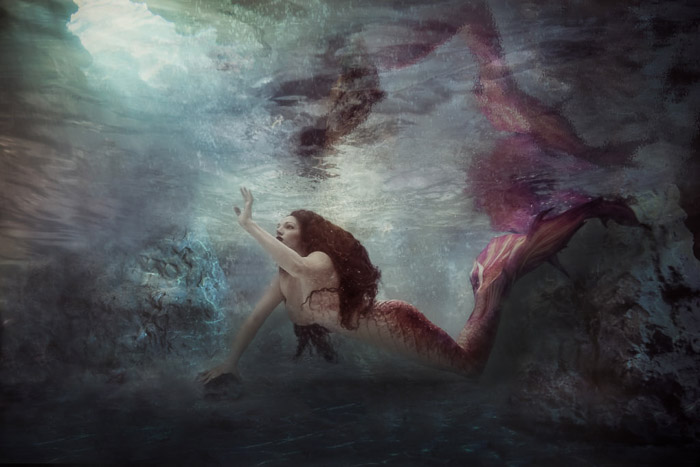 Other interesting ideas for unique additions to a shoot include using projectors on land facing the surface of the water. Joe Hoddinott does a spectacular job with his model and girlfriend Jess McIntern.
Other interesting ideas for unique additions to a shoot include using projectors on land facing the surface of the water. Joe Hoddinott does a spectacular job with his model and girlfriend Jess McIntern.
They worked in the past on a series collection titled “Hold Your Breath” dedicated to the healing process of Jess’s cancer journey.
Now in remission, they work on a new look using protectors covering her body. This is a new twist on the colors that entered her world again.
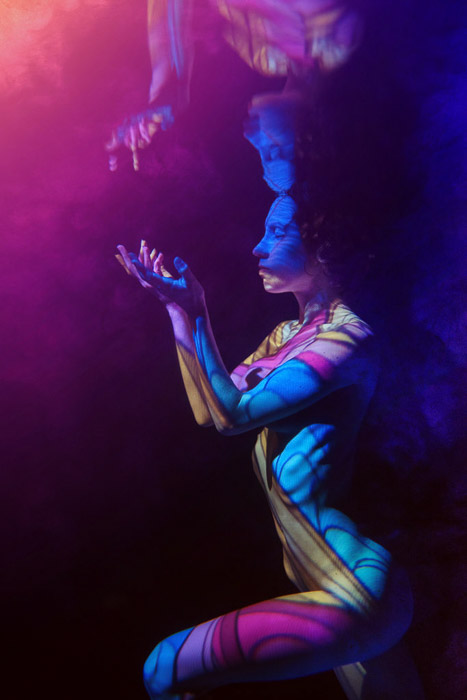
Image courtesy of Joe Hoddinott
Wardrobe for Underwater Sessions
Choosing your selection for underwater portraits depends on the client. If they are a strong swimmer you can go with a long flowy gown. I always advise strongly to have a lifeguard on deck at all times.
Even if you are in just six feet of water, the gowns can get tangled creating a panic. This can result in more issues.
Someone on deck can gauge if your client/model is becoming tired faster than you are noticing while in the pool with them.
Examples of exhaustion will be turning the head upwards while treading water or even reduced conversion.
To you in the pool, it may look different. Having someone above to let you know she needs a break is always helpful.
The gowns can be anything from prom dresses to longer fabrics tied around their waists. You can find great dresses at places such as Goodwill. You will not have to worry about these in case they don’t survive being submerged.
Keep in mind to rinse your gowns in fresh water after each pool time. This way, you can preserve your wardrobes for future sessions.
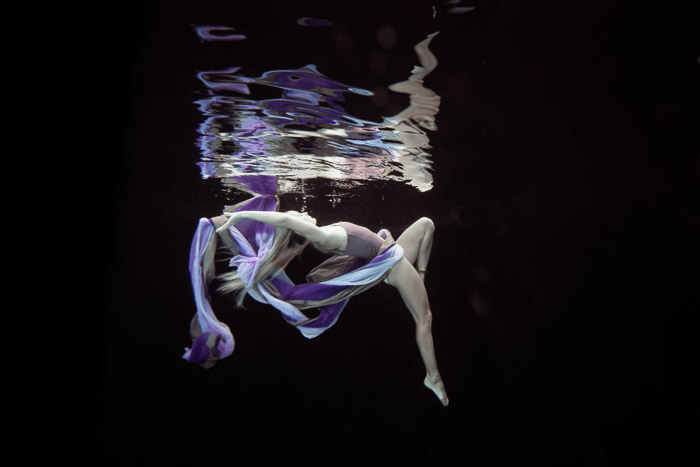
For clients who have a more difficult time with the longer gowns, you can make a slit up the side. They’ll be able to move their legs freely.
In post, add the side of the skirt back in to give the illusion of a fuller longer dress.
This works well when you are shooting couples. They need to work together without the dress getting in the way of their mobility. 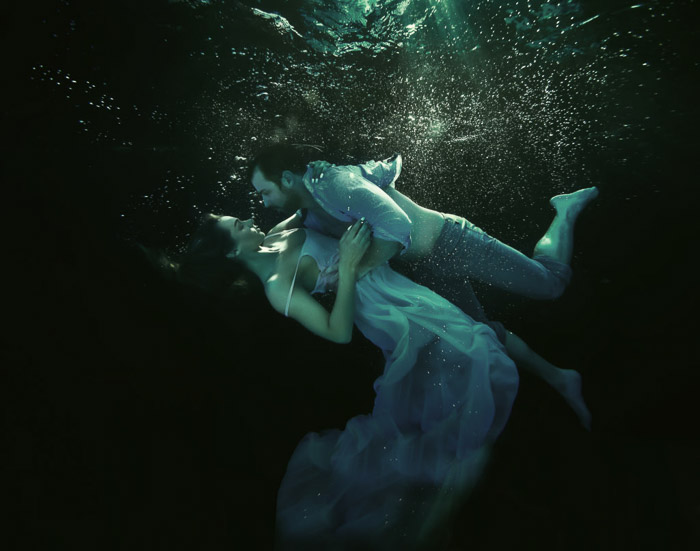
Post Production for Underwater Photography
This is mainly up to photographer preference.
Some artists love the clean look of little post-production and just add color balance. Other photographers find themselves emerged in a love of composite work and add a whole new world to their images.
There is no right or wrong to post-production choices.
When you are adding Photoshop work to your images remember to keep in mind what changes below must change above.
If you change the color of a client’s dress underwater, be sure to add that color change if you have a reflection on the water’s surface.
This will help keep the image feeling true and not leave the viewer knowing it was altered. The image needs to allow the viewer to feel they are there, part of the mystery. They shouldn’t be thinking of how much work was done in post.
For more tips and inspiration, check out our new post about underwater photography examples next!
